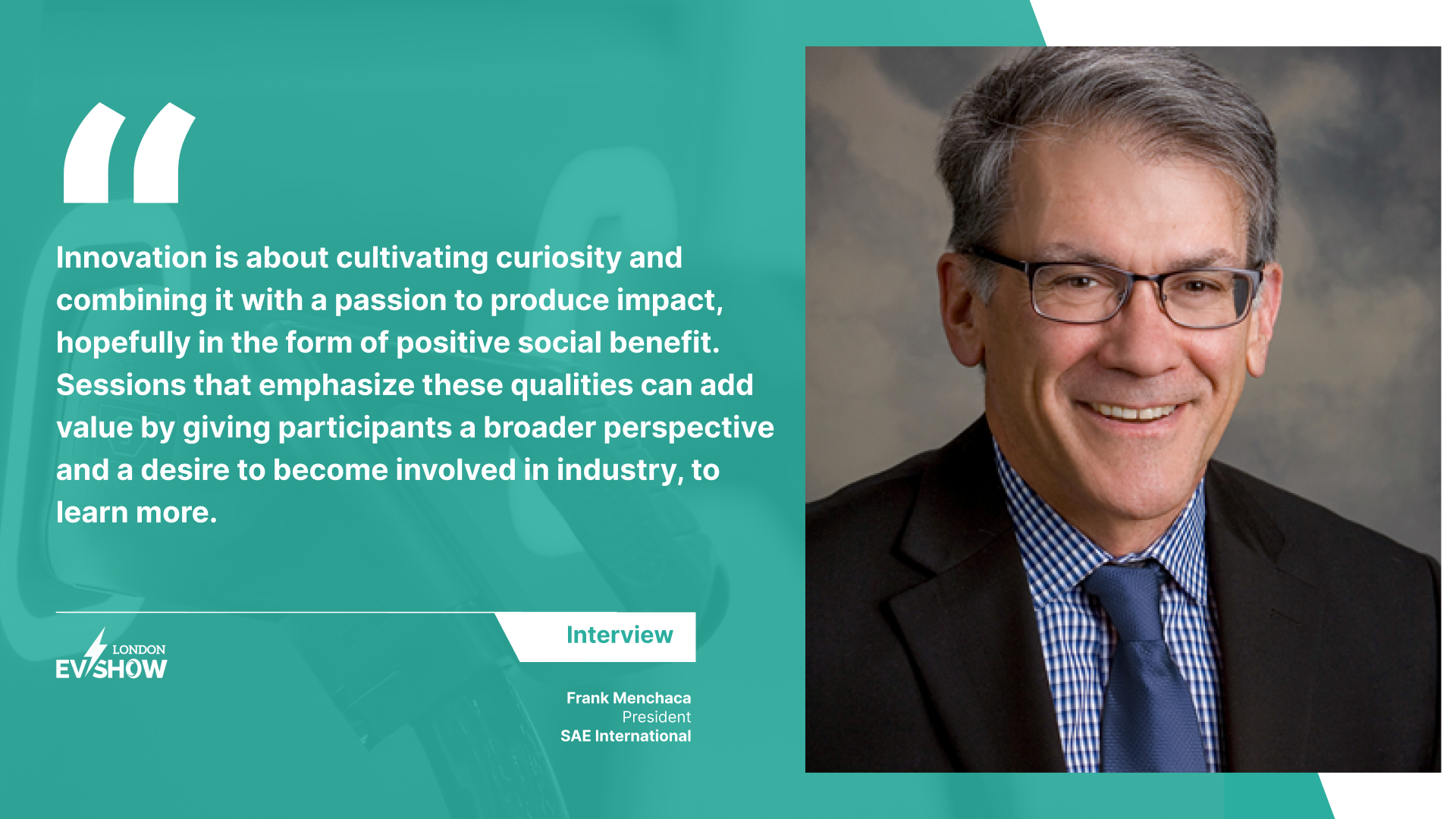In an engaging Q&A session, Frank Menchaca, President at SAE International shares valuable insights into the hurdles faced in attaining net-zero emissions, the role of SAE International in supporting green transportation solutions, and how the organisation fosters a culture of innovation, collaboration, and diversity among its members. Moreover, he sheds light on SAE's pivotal role in shaping industry standards for electric vehicles, paving the way for their widespread adoption.
#LEVS: As a C-suite leader in sustainability and innovation, what do you see as the biggest challenge in achieving net-zero emissions and what steps is SAE taking to promote and support the development of environment-friendly transportation solutions?
Frank: Transportation accounts for the largest share of greenhouse gas emissions both in the U.S. and around the world. Transitioning from fossil fuel-based energy to electrification and other sources is the backbone of any plan to achieve a net zero target. SAE is heavily involved in this area in terms of infrastructure, workforce and circular economy.
#LEVS: How does SAE International foster a culture of innovation, collaboration and diversity among its members, what resources does the organisation provide to support members' professional growth & development?
Frank: The reskilling and upskilling of the workforce to meet the demands of electrification is a key priority for us with initiatives like our partnership to bring the battery academy to market. We want to prepare people from all walks of life and every ethnic background for success in the new energy economy.
#LEVS: SAE is a leader in developing industry standards for electric vehicles. What new standards is SAE currently working on that could help accelerate the adoption of EVs?
Frank: SAE is standardizing Tesla’s NACS charging plug.
#LEVS: As an expert in marketing and business development, what strategies do you recommend for companies looking to enter the electric vehicle market, particularly in the United Kingdom?
Frank: Having a reliable EV charging infrastructure is key.
#LEVS: As someone with experience in both the humanities and STEM fields, what do you see as the most significant cultural and societal barriers to the adoption of electric vehicles, and how can these be addressed?
Frank: One thing a humanities background affords is highly-developed communications skills. I think this is key. The benefits of a sustainable transportation system have to be understood in terms of human impact and this requires combining societal factors like equity of access with scientific ones such as functional performance of infrastructure.
#LEVS: How can events like the London EV Show promote innovation and collaboration among industry stakeholders and advance electric mobility and solutions for the benefit of humanity?
Frank: Innovation is about cultivating curiosity and combining it with a passion to produce impact, hopefully in the form of positive social benefit. Sessions that emphasize these qualities can add value by giving participants a broader perspective and a desire to become involved in industry, to learn more.

